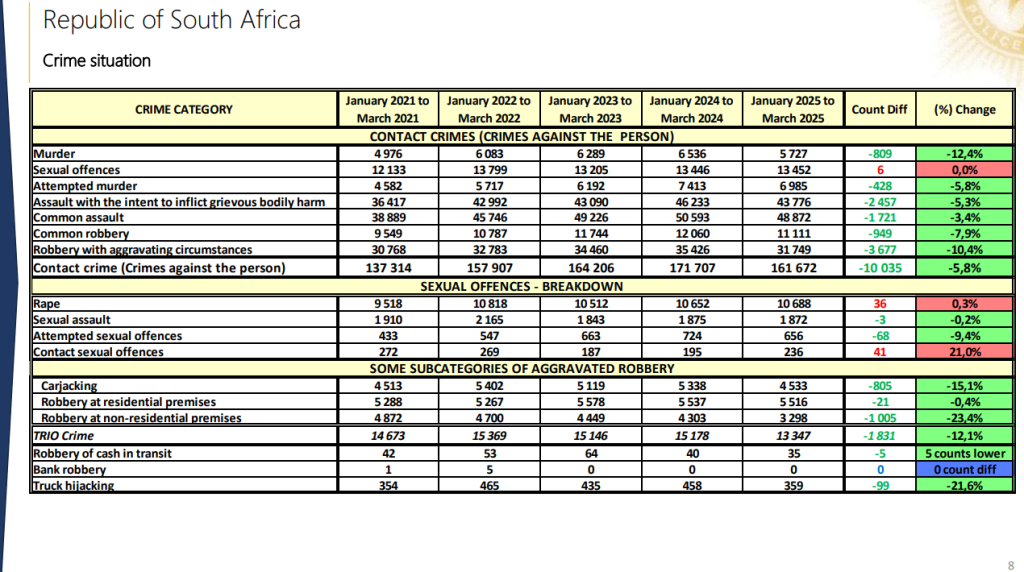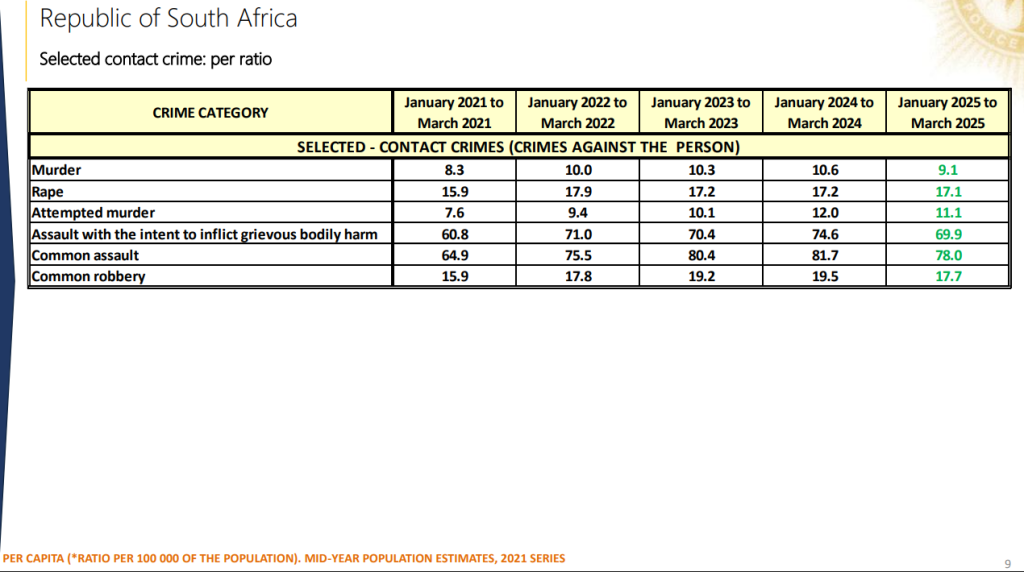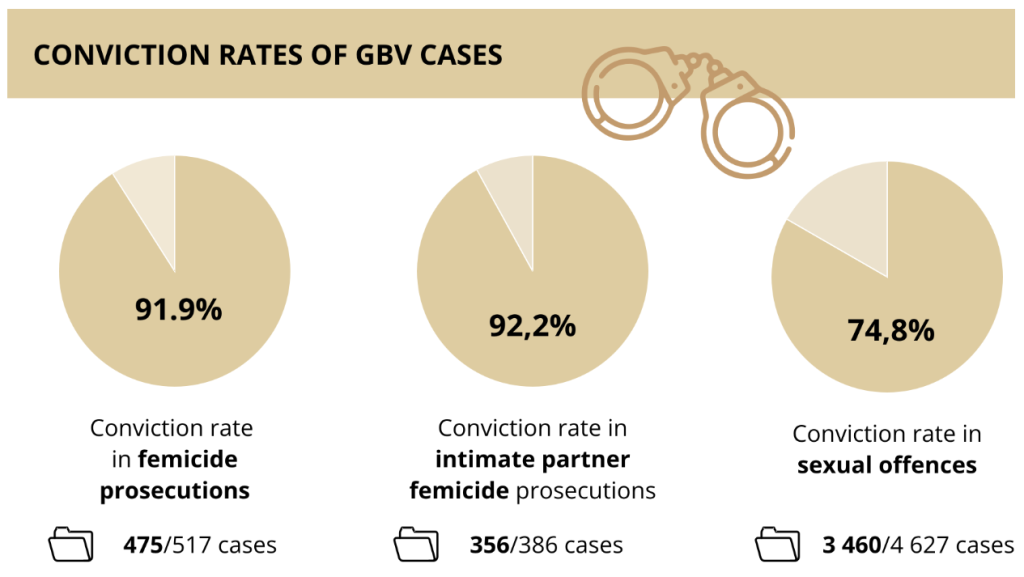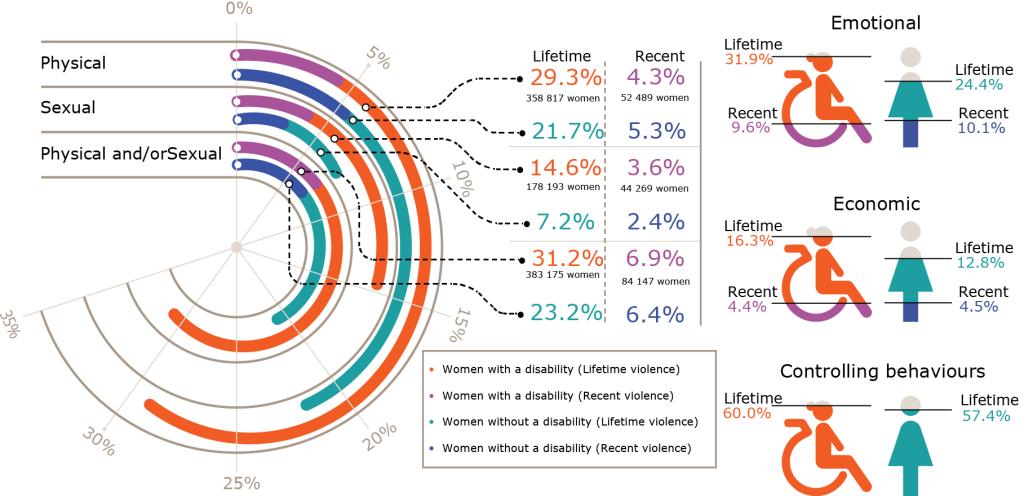Women’s Day Marred by GBV as Reported Cases Surge in South Africa

Table of contents
- Rising Gender-Based Violence in South Africa: A Crisis Demanding Action
- The Alarming Increase in Gender-Based Violence
- Government’s Response to the National Crisis
- The Societal Impact of Gender-Based Violence
- Advocacy and Calls for Immediate Action
- The Path Forward: A Multi-Pronged Approach
- Urgent Intervention
Rising Gender-Based Violence in South Africa: A Crisis Demanding Action
As South Africa marked Women’s Day 2025, an alarming rise in gender-based violence (GBV) overshadowed celebrations of women’s empowerment. Recent crime statistics reflect a deeply troubling increase in incidents of rape, assault, and femicide. These figures reveal a national crisis that continues to threaten the safety and dignity of women across the country.
This article explores the current state of GBV in South Africa and the government’s responses. Additionally, it highlights the urgent need for broader societal action to address this ongoing scourge.

The Alarming Increase in Gender-Based Violence
The latest crime statistics paint a disturbing picture. In the third quarter of the 2024/25 financial year alone, more than 9,300 women were raped, and over 13,700 were assaulted. Additionally, 966 women were murdered. These figures underscore the extreme violence faced by women in South Africa. They highlight a grim reality, where women live in constant fear of violence, often feeling neglected by the very systems designed to protect them.

SAPS
The significant rise in GBV cases has turned Women’s Day 2025 into a moment of reflection, rather than celebration. Meanwhile, the crisis continues to overshadow the progress that should have been made.
Government’s Response to the National Crisis
Recognising GBV as a “national crisis,” South Africa’s government has vowed to combat this issue. They plan to address it through systemic reforms and the implementation of strategic plans. In 2020, the government launched the National Strategic Plan on Gender-Based Violence and Femicide (NSP-GBVF) as the country’s comprehensive framework to fight all forms of violence against women and children.

Key interventions include the introduction of legal reforms and survivor support services. Additionally, there is the establishment of a GBVF Response Fund. A significant milestone was the passage of the National Council on Gender-Based Violence and Femicide Act in May 2024. This act created a statutory body tasked with coordinating the response to GBV across various sectors. These sectors include government, civil society, and the private sector.
This body works to strengthen prevention efforts and improve responses to GBV. It specifically focuses on reducing the occurrence of femicide and violence in communities.
The Societal Impact of Gender-Based Violence
The impact of GBV is felt across all sectors of society, from urban centres to rural areas. Vulnerable women, such as schoolgirls who walk long distances through unsafe areas, face high risks. Those living in crime-ridden townships also face disproportionately high risks of assault and violence.
This widespread violence has not only devastating personal consequences for the victims but also reinforces systemic inequality. GBV undermines the socioeconomic advancement of women, curbing their ability to participate fully in community and economic life. By continuing to threaten women’s safety, this crisis undermines the social fabric of the nation.

Advocacy and Calls for Immediate Action
On Women’s Day 2025, civil society organisations, political groups, and activists called for urgent and sustained action. They highlighted the need for accessible justice for survivors, better policing, and greater public awareness.
The Justice, Crime Prevention and Security Cluster has initiated targeted campaigns to address GBV and femicide. For instance, the 90-day campaigns launched earlier in 2025 aimed to combat these issues through high-intensity law enforcement efforts. These initiatives underscore the critical need for a long-term, strategic response. Such a response is crucial to tackle GBV and prevent further escalation.
The Path Forward: A Multi-Pronged Approach
Addressing the GBV crisis in South Africa requires a comprehensive and multi-faceted approach. Key actions include:
- Sustained funding for the NSP-GBVF and the expansion of related support services for survivors.
- Increased community engagement to raise awareness, change attitudes, and prevent violence before it occurs.
- Improved law enforcement training and increased accountability to ensure a more effective response to cases of GBV.
- Economic empowerment initiatives aimed at reducing the vulnerabilities that make women more susceptible to abuse.
- Legislative reform to close gaps in protection and ensure stronger prosecution of perpetrators.
As the country commemorates Women’s Day 2025, it is clear that much work remains to be done. The fight against GBV must continue. There must be sustained efforts to create a society where women are safe from violence. Women’s rights should be upheld and their dignity protected.
Read more about why gender-based violence in South Africa continues to escalate and what’s driving the crisis.
Urgent Intervention
The rise in gender-based violence reported during Women’s Day 2025 serves as a stark reminder of the urgent need for continued, coordinated action across all levels of society. While government initiatives like the National Strategic Plan on GBV and legislative reforms provide a framework for progress, lasting change requires active community involvement, effective law enforcement, and comprehensive support for survivors. Only through sustained commitment and collective effort can South Africa build a safer environment where women live free from violence, fear, and discrimination, truly honouring the spirit of Women’s Day.



